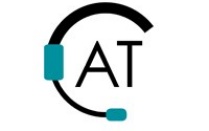Full citation
Citrin, A.V., Lee, R.P., & McCullough, J. (2007). Information Use and New Product Outcomes: The Contingent Role of Strategy Type. Journal of Product Innovation Management, 24, 259-273.
Format: Peer-reviewed article
Type: Research — Non-experimental
Experience level of reader: Fundamental
Annotation: Firms fall into four types according to their strategic approach to innovation. Each type is shown to be most effective at using new information, when the level of information use (instrumental versus conceptual), matches their strategic approach. Highly innovative firms (Prospectors) are best at conceptual use, while Incremental innovation firms (Defenders)benefit most from instrumental use. Analyzer firms benefit from conceptual use while instrumental use reduces their performance. The fourth type (reactors) represent a small percentage of companies and don't use information very effectively.
Setting(s) to which the reported activities/findings are relevant: Large business, Small business (less than 500 employees), University
Knowledge user(s) to whom the piece of literature may be relevant: Brokers, Manufacturers
Knowledge user level addressed by the literature: Organization
This article uses the Commercial Devices and Services version of the NtK Model
Primary Findings
Barrier: Firms which attempt to use information in ways that do not match their strategic orientation, create internal barriers to effective information sharing, integration and synthesis by their internal project teams.
Survey of 150 software development teams.
Occurrence of finding within the model: Step 4.6
Method: Consider a firm's strategic approach to information when selecting a partner: Highly innovative firms use information conceptually to to enhance both new product performance and new product creativity outcomes. More conservative firms relying on incremental improvements enhance both product performance and outcomes through incremental use of information. Firms that innovate to some degree while protecting existing product markets, benefit from conceptual use but detract from performance and outcomes when applying information instrumentally.
Survey of 150 software development firms.
Occurrence of finding within the model: Step 4.1
Tip: Managers should clearly evaluate their firm's strategic orientation towards product innovation, and consider different information use strategies to benefit project outcomes: Managers in prospector firms — aggressive approach to innovation — should focus on conceptual information use. Managers in defender firms — incremental changes in narrow markets — should focus on instrumental use of information. Managers in analyzer firms — those on a middle path — should apply conceptual use of information to enhance new product performance, and apply instrumental use of information to enhance their new product creativity.
Survey of 150 software development firms.
Occurrence of finding within the model: Gate 4, Gate 5, Gate 6
Secondary Findings
Method: Four types of firm strategies toward new products: 1) Prospectors value being first to market with many innovative products; 2) Analyzers carefully protect existing markets while capitalizing on potentially profitable emerging markets; 3) Defenders focus on protecting narrowly defined and existing markets and only innovative in response to threats; 4) Reactors lack any clear strategic orientation which may imperil their long-term survival. (Miles & Snow [1978])
Occurrence of finding within the model: Step 4.1
